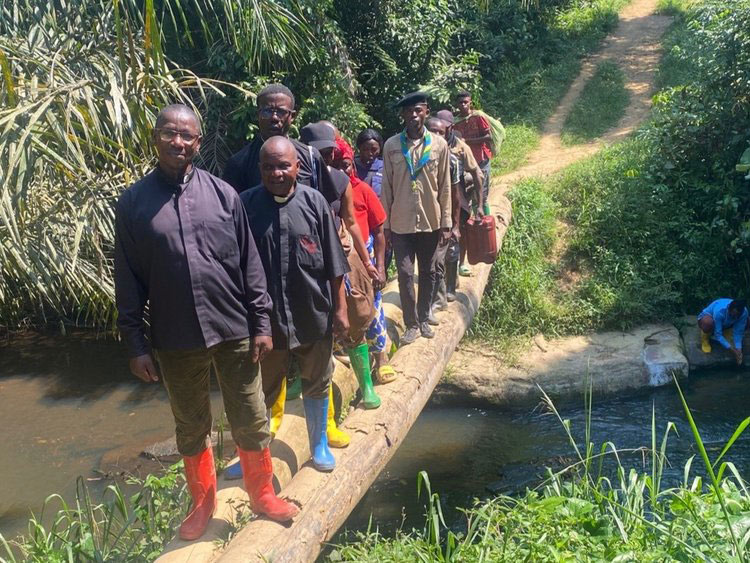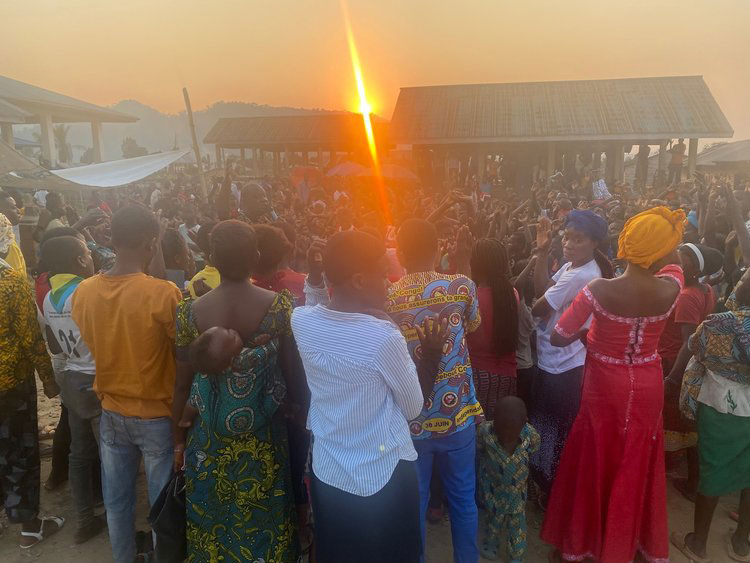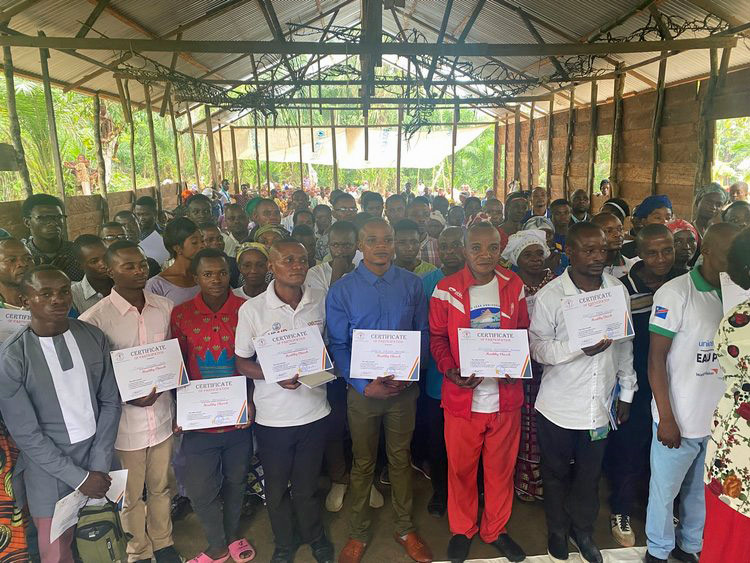The archdeaconry in the forest
Martin Gordon is blown away by openness and energy of Walikale in DR Congo
Photo: Martin Gordon (in purple shirt) is shown round the Walikale area in eastern DRC
Three days into the forest from Goma in south east DRC, is Walikale. Recently mission partner Martin Gordon became the first bishop to visit in 30 years. He was stunned at what he found.
by Rt Rev Martin Gordon, Bishop of Goma
A few weeks ago, we took a trip which was undoubtedly one of the highlights of my time leading the Diocese of Goma. I took a team of diocesan heads of department and Kenyan evangelists from Anglican Missions in Africa to visit our missionary archdeaconry of Walikale, in the forest north west of Goma. This is the first time a bishop has visited in the 30 years since the first church was opened in there in 1994.
It is the only other archdeaconry outside of Goma it is safe to visit for now. It has a population of 700,000 but is the same size as Belgium and covers half of the diocese. To get there we needed to take a boat across lake Kivu and then fly over the forest to land in an airstrip belonging to a tin mine. Going by motorbike is possible but can take up to three days. The only clergy there is the archdeacon, who retired during our visit.
A snapshot of Walikale
Education is poor and boys leave school early to search for their fortune in the plethora of tin, gold and diamond mines. Apart from one industrial tin mine, they are small-scale, artisanal mines and working conditions are poor. In the towns and villages men are in a minority for much of the time, and when they return home it is rarely with any money. Minerals are everywhere and many believe that the land they own will one day make them a fortune.

Marriage and faithfulness in relationships is rare. Everywhere you go there are crowds of children and many women will have more than 10. Often girls are pregnant soon after puberty and it is not uncommon for girls to have had two or three children by the age of 16. In some families this is encouraged so that when the bride price is given, the family can also demand a fine for underaged pregnancy. Whilst in Walikale we conducted only the second and third Anglican marriages in 30 years, the first being last year. It was a significant focus of our teaching and many more are preparing church weddings in the coming year.
The visit
Other than to encourage the believers, the main purpose of our visit was for a week of teaching on growing healthy churches, and to evangelise. At the end of the week over 500 people had given their lives to Christ, more than 100 had been baptised and 200 confirmed. At the closing service we commissioned 98 evangelists and nine leaders for each of our fledgling churches. None of them are yet ordained, but we continue to prioritise Walikale in our training of men and women for ministry.

And as one local chief told us Walikale is still virgin territory for the Gospel. This was evidenced by the number who weren’t baptised, in contrast to the rest of the diocese. The population is open to Jesus and keen to hear about what he can do for them. They are asking for the Anglican Church to invest spiritually and materially in Walikale.
With the generous support of a partner, we were able to secure sizeable land concessions and land documents for each of our churches, with possibilities for income generation in each place through agriculture, livestock or fish to help with church growth. Main photo is exploring the 2 hectares in Walikale Centre.
The future of Walikale
There is an exciting opportunity to church-plant across Walikale and to focus on education and development as part of a wholistic mission to bring lasting Gospel transformation. Land is relatively cheap for now, but once the road to Goma is built (and the money has been there in the past and mishandled) Walikale will open up, grow and develop very quickly.

It seems as if God has opened a door for ministry in Walikale. As such it has become a mission priority for the diocese, especially as many other areas are out of bounds for the moment. Our vision is to continue with church-planting, development, training and education, with a long-term vision for Walikale to become its own diocese.